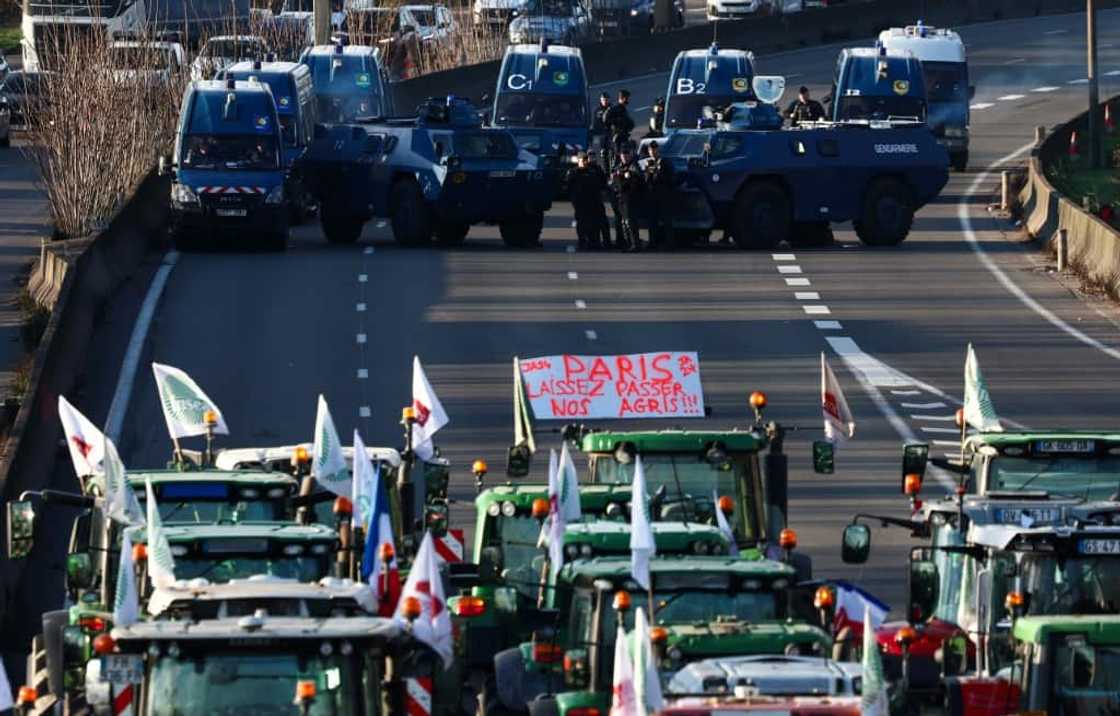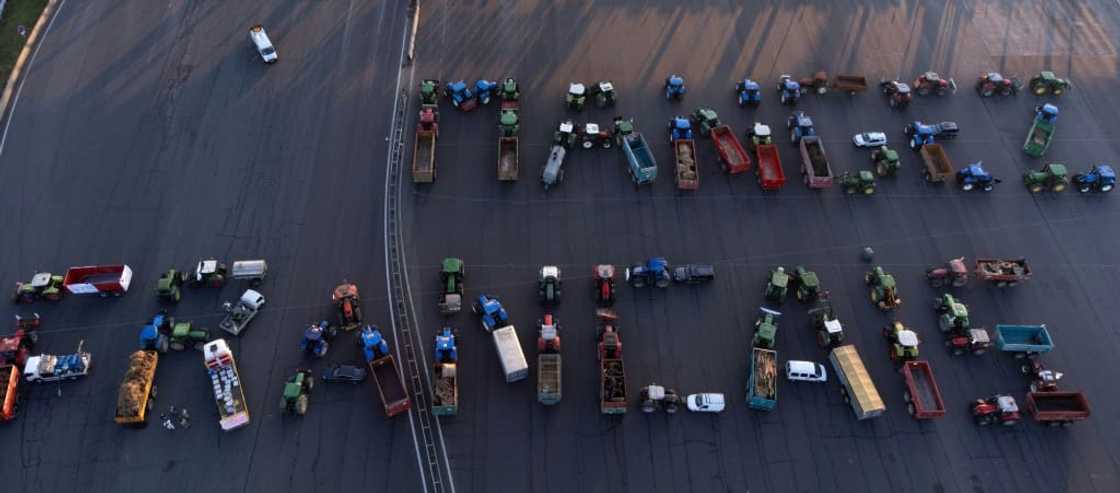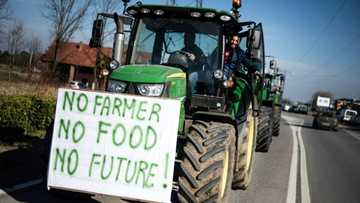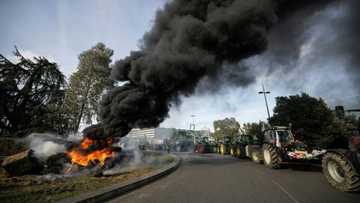Defiant French farmers stick to barricades

Source: AFP
France's farmers showed little sign on Thursday of abandoning their protest despite government concessions in response to a movement that has spread nationwide and elsewhere in Europe.
Seven blockades were in place on motorways around Paris, throttling access to the capital as farmers in tractors were running a go-slow on the A9 motorway linking to Spain.
Long-standing complaints about squeezed pay, heavy regulation and tax were first inflamed by an agricultural fuel duty rise, whose reversal by the government last week has failed to calm tempers.
"We're still in action because the measures that have been announced are not up to our expectations or the stakes," said Bruno Vila, a union chief in the southwestern Pyrenees-Orientales department.
While President Emmanuel Macron is in Brussels for an EU summit, Prime Minister Gabriel Attal's office said he would hold a midday press conference after days of talks with rural unions.
A group of 79 farmers were released after being held in custody for a Wednesday incursion into the Rungis wholesale food market near Paris, a vital distribution hub for the capital region's 12 million people.
Truckloads of police backed up by armoured vehicles were controlling access to Rungis early Thursday, an AFP journalist saw, slowing traffic.
"Our plan will certainly be taking a break and coming back," said Frederic Ferrand, who led a farmers' convoy that reached the food market on Wednesday.
Another convoy of tractors heading for Rungis from southwest France was searching for a new route after being held up by police.
Around 200 tractors blocked 50 supermarkets in the Haute-Loire department in southern France, the local union said, criticising "inappropriate behaviour by major retailers" who "put crazy pressure on our farmers with suffocating margins".
'Very hard to survive'
In a sign of the pressure on Paris, Macron has scheduled one-on-one talks with European Commission chief Ursula von der Leyen before the EU leaders' summit later Thursday.
His office said the two would discuss "the future of European agriculture", after more than a week of farmers' protests.
Initial gestures from the bloc have failed to calm demonstrations and road blockades that have dogged major agricultural powers, especially France.

Source: AFP
Hundreds of Portuguese farmers were also blocking roads Thursday, including two border crossings to Spain.
"We find it very hard to survive," said Rui Souza, 58, who joined a demonstration in Golega in central Portugal.
Some of the country's farmers have not been mollified by Lisbon's announcement of 500 million euros ($540 million) of aid to deal with headwinds including a recent drought.
"We won't copy the French... the actions we run will be peaceful," said Nuno Mayer, one of the spokesmen of the Portuguese movement.
'Fewer restrictions'
Brussels' concessions have so far included a temporary exemption from rules requiring some farmland to be left fallow.
The EU could also limit imports of some Ukrainian agricultural products, on which tariffs were dropped following Russia's 2022 invasion.
France's government hailed the moves as a victory for its lobbying, but they have not been enough to soothe the farmers' grievances.
"We want fewer restrictions and especially to be able to fight on the same terms as our competitors," Nicolas Galopin, a farmer from south of Paris, told broadcaster France Inter as he manned a blockade on the A6 motorway.
Paris has said it will not accept a contentious free-trade deal with Latin American bloc Mercosur in its current state, caught between other EU nations determined to press ahead and some farmers who want it dropped altogether.

Source: AFP
French and Belgian farmers had blocked a border crossing point together late Wednesday to condemn trade bargains they say "distort competition".
France's second-largest farmers' union Coordination Rurale (CR) suggested members gather at the National Assembly parliament building.
"Given that a lot of farmers want to come to Paris, we're telling them... go to the National Assembly, so that all the MPs and senators can come and meet the farmers," CR's president Veronique Le Floch told RMC radio.
Source: AFP




